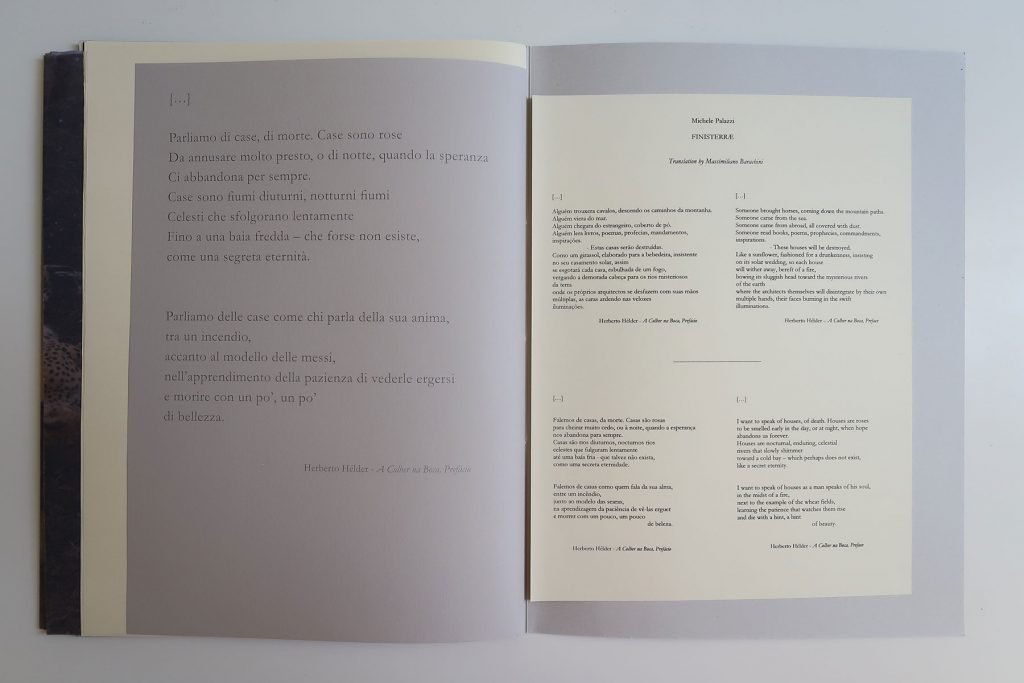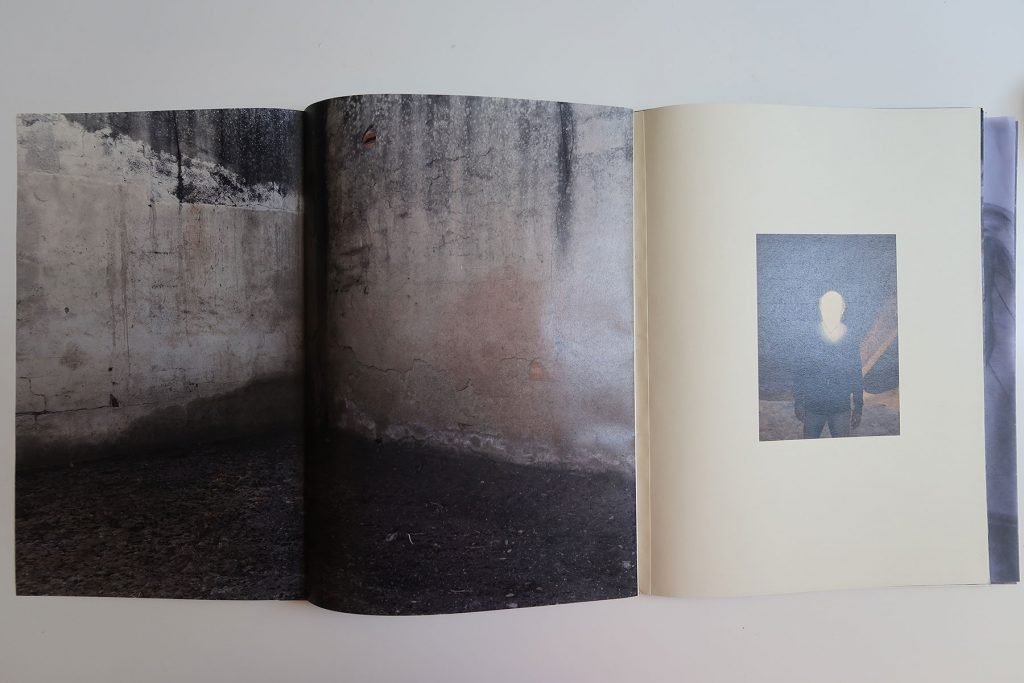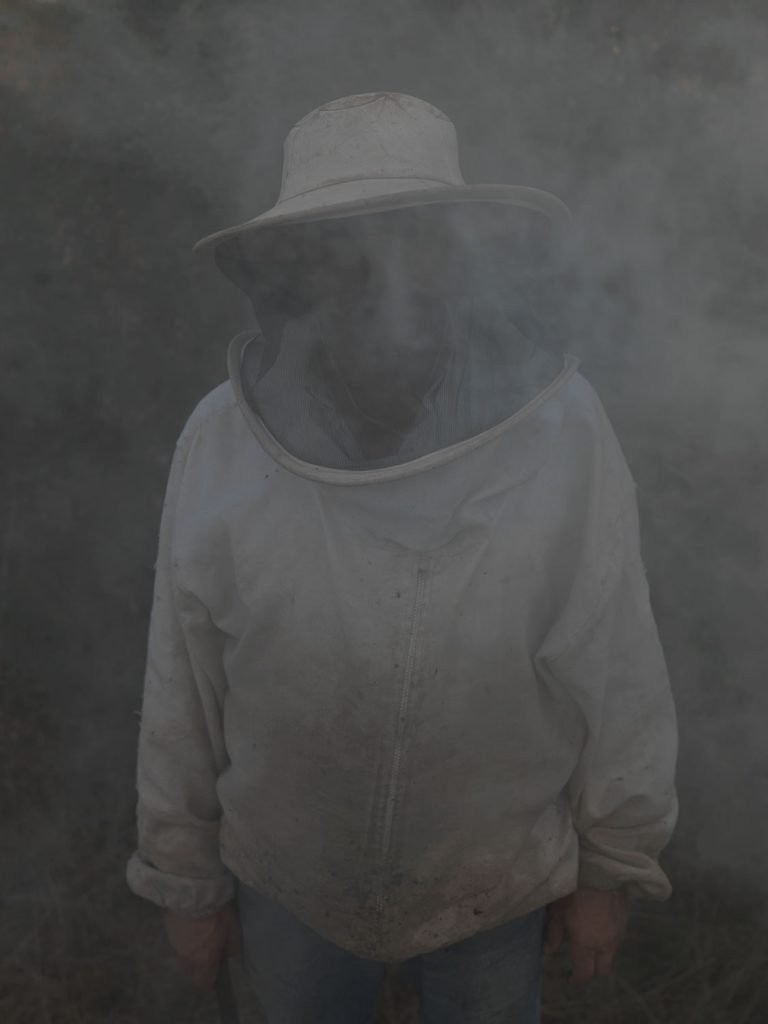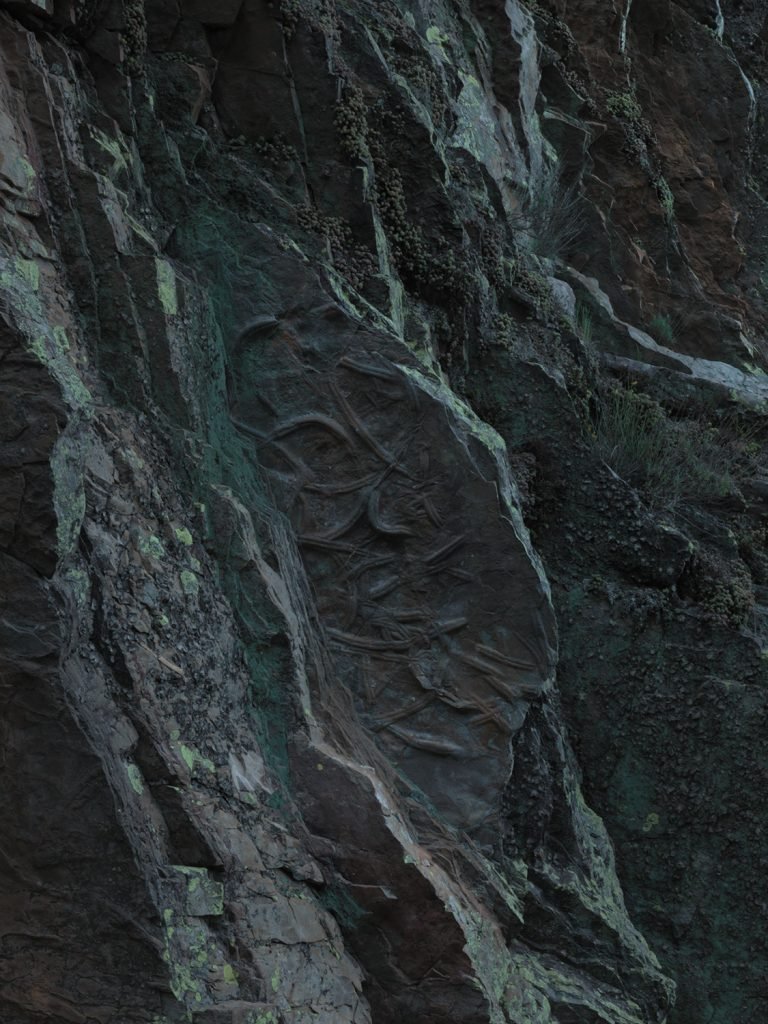To look for the origins of something often is to understand the whys and when those things had turned out to be what they are now. Finisterrae by Michele Palazzi goes as far as the “end of the world” – or at least the European one as known in biblical times – to find out why certain things are what they are now. The cultural and economic crisis of recent years has been the everyday motif across the European continent. However, most hit countries belong to the margins of this territory, those same places who have seen flourishing some of the greatest civilisations of all times. Greece, Italy, Spain and the rest of the Mediterranean landscape is struggling more than others to cope with the new power structure implemented by the European Union, and its centralisation of economic efforts for the benefit of the more industrialised inland. Finisterrae is the first part of a larger series reflecting on the identity crisis those countries and its people are consequently experiencing. It investigates Portugal’s economic decline and analyses the impact this situation had on its land and cultural heritage.
Michele Palazzi’s strategy for this work actively applies the power of the metaphor within an historic setting to widen the possibility of a documentary practice inefficient otherwise. Dark tones, cryptic visuals and intricate use of bookmaking technics have been developed throughout the book with the conscious intent of unveiling meanings that do not belong to the surface of reality. The book has been produced in collaboration with Leporello/Origini publishing, under the direction of designers Valentino Barachini and Chiara Capodici. It comes in a brown paper wallet that enhances the fragility of its content – both physically and of concept. The wallet is loosely stitched to give a hand-made finish to the object. This feeling is then expanded by the layered structure of the book itself, allowing a unique multi sensorial experience that well resonates with the themes explored. This is an unusual book, a one of a kind artefact that takes bookmaking to an all different level. A variety of Fabriano paper and grains has been used in combination with transparent prints and golden inserts to swallow up the viewer into an intricate fruition of the content that surprises, fascinate but most importantly disorients. It sets the tone for the prevailing melancholic mood leading the narrative. It is a tactile call to the viewer’s senses impossible to be ignored.
Page after page, the inevitability of interaction with those rich textured images – some times simply stuck on paper with tape, some others folded into themselves – represents a search for something unspeakable and at times religious. The sensation, when navigating through this book, is the one of entering a hidden, parallel dimension where the viewer is allowed to see things out of the ordinary. Time stops, lights go down and silence is a subtle blow passing through the gaps between the fingers of confused hands in search of answers, of future, of identity. By unfolding large scale images printed on translucent paper, the mysticism of this forgotten land arises to the viewer’s eyes and the mere understanding gives way to a guttural feeling of sympathy with the depicted places that requires no further explanation. From dark haze to shining light within the turn of a page. Portugal’s reality and its cultural crisis are here amplified for the senses, for then to be acknowledged by the mind.
The work evolves around basic themes of abandonment, lost identity, the stillness of time and mystic connection to what can be called roots – home maybe. The younger generation has been forced to leave this country in search of work opportunities and a better future, forgetting about their native country and its historic soul. Traditions, rituals and attachment to basic values of living in symbiosis with the land had slowly but irreparably gone lost, leaving family homes to disappear into decay. A population proud of its culture is now experiencing a systemic entropy that brings incredible pain to the eyes of the world all.
Questions of identity are being raised throughout the book by faceless, veiled and projected creatures. It is impossible to know who they are and where they are going. Perhaps, they have lost sight of where they come from, as the author seems to suggest – from those great civilisations, incredibly rich in culture and ingenious, once referred to as ancestors. Among those figures, the one with the most visible identity is the young forcadores in the front cover. A key element of Portuguese culture that is also destined to vanish, this young man’s own identity disappears too behind his closed eyes, giving to the viewer nothing more than an empty costume stained in blood.
Nature is wrapped in mist, flames are burning vividly into darkness and solid rocks enshrine fossil secrets of more glorious times. The biblical inspiration coming from the Book of Daniel is reworded in Palazzi’s work with simple but effective parallelism between man and land, tradition and destruction, time and death. Doors stay close to symbolising an end, but also disruption of a cultural heritage that struggles to see light. The only light available within the work lies in the desperate call for a renewed attention to the past, to its supposed glory and devoted faith. An invitation to whoever can make a difference, to turn their attention toward the more timeless and precious fruits of those struggling to survive, at the edges of an economic Union that penalises the peasant living at the outskirt of Europe, in favour of the modern industrialised man.
Michele Palazzi’s artistic effort invites the Mediterranean man to seek for his origins and ultimately find himself in the history of his forefathers. To look back at his cultural values, at his enduring artistic patrimony and love for the land that made contemporary Europe possible. This can be all the more noticed in the intelligent choice of hosting poet Herberto Hélder’s heart wrenching and sublime lament for a “secret eternity”. Finisterrae is the first chapter of a wider research of these origins and values temporarily lost, an attentive rediscovery developed by Palazzi with a good dose of devotion. It is a book that makes a small selection of images speak a very loud voice – also because of the clever design choices just right for this occasion. A valuable source of inspiration, both visual and conceptual that will soon be enriched with the now in progress chapter The Roman Garden, dedicated to his homeland Italy.



















